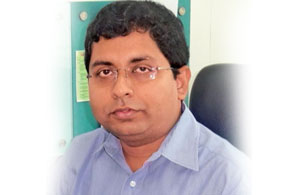
Terex will be launching the new 100-150 TPH plant series in May 2014
The demand in the realty sector still seems to be for 50-100 TPH. Is there any specific reasons?
In the realty sector, a lot of projects opt for smaller crushing plant due to smaller demand for crushed aggregate as compared to the road sector. Terex is launching the new 100-150 TPH plant series in May 2014, and we expect that the new product should be able to meet the requirements of the industry.
What are the various issues do you face while financing such customers?
Most of the new customers find it difficult to get financing since they do not have any prior experience of operating a crushing plant or have no track record of having successfully completed an aggregate supply job. However, we have seen that most of these new customers get backing from the main contractor, who is typically a large infrastructure company.
To what extent has the concept of modular crusher concept been accepted by the end-user segment? Also tell us the advantages of modular crushers?
The industry has been transforming and the shift is from traditional stationary plants towards mobility. Modular plants fit in between both these categories. They are stationary plants but with no heavy civil foundations, and are much easier and quicker to install. In case of need to shift these plants, they are equally quick to dismantle and transport. Also, there is minimal residual loss since there is no heavy civil structure. The modular plants also give the customers an opportunity to have a certain degree of customisation, which is not easy in mobile plants.
Is there any development happening with regard to dual power source in static/wheeled crushers?
The wheeled and static crushers run on electricity power from the grid or on diesel generators. To my knowledge, there is no new development happening in this regard.
What are the latest technology features inbuilt in your range of products?
Our products are manufactured in our state-of-the-art manufacturing facility at Hosur, Tamil Nadu. All these machines are designed keeping in mind the requirements of the Indian customers. They come with various in-built product capabilities to provide maximum flexibility to the customers and suit the changing needs of the industry. At Terex, safety and quality are main focus areas. We ensure that the products leaving the factory have the 100 per cent quality assurance.
There is a big competition among the domestic players especially in the lower and higher capacity range. How do you assess this competition?
We have a number of players in the field, including global players and Indian companies. What separates us from the rest is our commitment for the after-sales service and the ability to offer a comprehensive solution to the customers. Terex is a global leader poised to meet the needs of the crushing and screening industry with a range of products such as tracked machines, wheeled machines, modular plants, static crushers and washing equipment. We have also made investments in our aftermarket segment, which includes opening of new parts warehouse in north India.
How competent is Terex MPS to meet the challenges?
Terex is well positioned to meet the growing demand with local production facility in India and a large pool of engineering talent to design new products to continuously meet the industry demand. We have also made progress with localisation of key components and hope that all this would help us to provide the Indian customers with world-class experience with our products and service.
Terex is well positioned to meet the growing local market demand.


 +91-22-24193000
+91-22-24193000 Subscriber@ASAPPinfoGlobal.com
Subscriber@ASAPPinfoGlobal.com